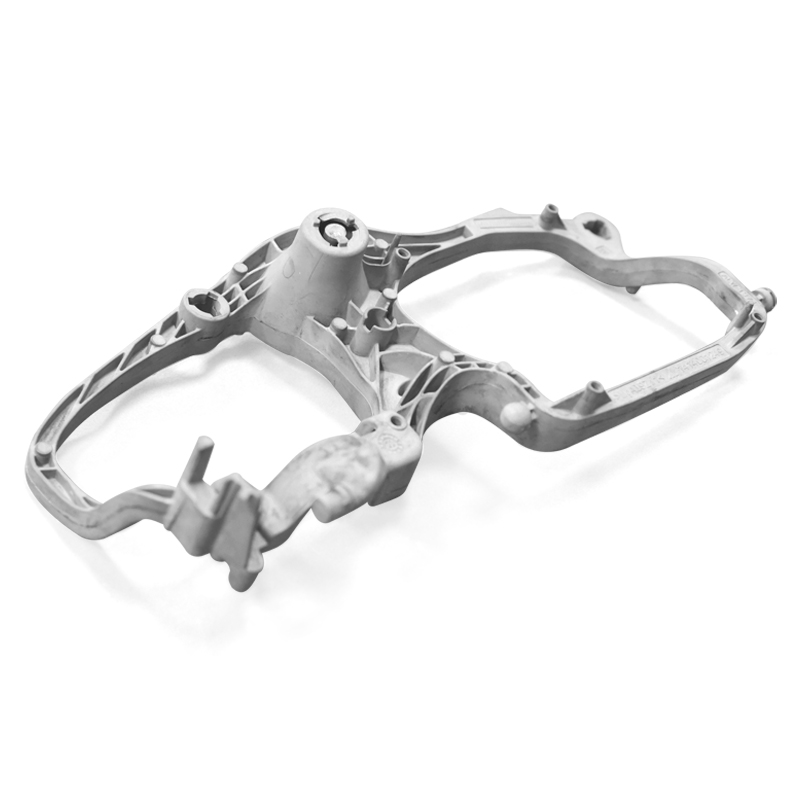Introduction:
Aluminum is a versatile and widely used metal in various industries. It is known for its lightweight, excellent thermal and electrical conductivity, corrosion resistance, and high strength-to-weight ratio. Aluminum can be found in different forms, including cast aluminum and aluminum alloys. In this article, we will compare and contrast cast aluminum and aluminum, highlighting their differences and applications.
1. Manufacturing Process:
– Cast Aluminum:
Cast aluminum is produced through a process called casting, which involves pouring molten aluminum into a mold and allowing it to solidify. This method allows for the production of complex shapes and intricate designs. Cast aluminum products are typically manufactured in foundries using sand or permanent molds.
– Aluminum:
Aluminum, on the other hand, is usually produced through a process called extrusion or rolling. In extrusion, a billet of aluminum is forced through a die to create a desired shape. Rolling involves passing aluminum sheets or coils between two large rolls to reduce the thickness and achieve the desired dimensions.
2. Strength and Durability:
– Cast Aluminum:
Cast aluminum possesses excellent strength and durability. The casting process allows for the incorporation of reinforcing elements, making it suitable for applications requiring high structural integrity. However, cast aluminum may be more prone to cracking or breaking under extreme stress compared to aluminum alloys.
– Aluminum:
Aluminum alloys, which are a combination of aluminum and other metals, offer improved strength and durability compared to pure aluminum. These alloys can be tailored to specific applications, providing enhanced resistance to fatigue, corrosion, and wear. Aluminum alloys are commonly used in the aerospace, automotive, and construction industries.
3. Weight:
– Cast Aluminum:
Cast aluminum is generally heavier than pure aluminum due to the presence of additional elements and the casting process itself. While it may not be the ideal choice for weight-sensitive applications, cast aluminum\’s strength and durability compensate for its slightly higher weight.
– Aluminum:
Pure aluminum is lightweight, making it a popular choice for applications where weight reduction is essential. Its low density allows for the manufacturing of lightweight structures without compromising strength and performance. Industries such as transportation and packaging rely heavily on aluminum for its lightweight properties.
4. Thermal Conductivity:
– Cast Aluminum:
Cast aluminum has excellent thermal conductivity, making it suitable for applications that require efficient heat dissipation. This property makes cast aluminum ideal for heat sinks, engine components, and various heat exchangers.
– Aluminum:
Aluminum also possesses good thermal conductivity, although not as high as cast aluminum. Its thermal conductivity, combined with its lightweight nature, makes it a preferred material for heat transfer applications, such as radiator fins and heat exchanger tubes.
5. Corrosion Resistance:
– Cast Aluminum:
Cast aluminum exhibits good corrosion resistance, especially when compared to other metals. The formation of a natural oxide layer on the surface protects it from environmental elements. However, cast aluminum may be more susceptible to corrosion compared to certain aluminum alloys.
– Aluminum:
Aluminum alloys can be engineered to provide superior corrosion resistance, even in harsh environments. By alloying aluminum with elements such as copper or magnesium, the resulting alloy can exhibit enhanced resistance to corrosion, making it suitable for marine, aerospace, and automotive applications.
Conclusion:
Cast aluminum and aluminum both have their unique properties and applications. Cast aluminum excels in strength, durability, and thermal conductivity, while pure aluminum offers the advantage of lightweight and corrosion resistance. The choice between cast aluminum and aluminum alloys depends on the specific requirements of the application. Understanding these differences allows us to make informed decisions when selecting the appropriate material for a particular project.
-

- CNC vélaðir hlutar og íhlutir
-

- Magnesium Aluminum Alloy Children Bike 3-8 Years Old Cheap Hot Sale 14 Inch Children Bicycle FOREVER Wholesale 2022
-

- Magnesíum álfelgur deyja-steypu Bílavarahlutir framljós rammi
-

- Mangensium álfelgur deyja-steypu Thixomolding málmhlutar
-

- OEM deyjasteypuhlutar fyrir bifreiðar sætisgrind
-

- Customized foundry products high precision die-casting parts for e-bike integrated frame

 0086-750-5616188
0086-750-5616188 +86 13392089688
+86 13392089688 sales@zhongmei-tech.com
sales@zhongmei-tech.com








